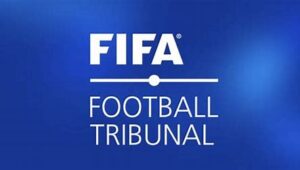FIFA DISPUTE RESOLUTION CHAMBER (DRC) CLAIMS

The DRC is particularly involved in cases arising under the Regulation on the Status and Transfer of Players (RSTP), especially on disputes relating to training compensation and solidarity contributions in football transfer cases.
Under art.1 par.1 of Annexe 4 of the RSTP, training compensation must be paid, as a general rule, up to the age of 23 for training received up to the age of 21 “unless it is evident that a player has already terminated his training period before the age of 21.” The training period runs from the age of 12 to 23.
Such claims can involve substantial sums of money.
For example, in the case of FC Ararat (the Claimant) and Puskas FC (the Respondent), on 4 August 2022, the DRC awarded the Complainant the sum of €58,520 (around Sw. Frs. 54,600), plus interest of 5% per annum until the date of “effective payment”, to be paid by the Respondent within 45 days of the date of the notification of the Decision.
Failure by the Respondent to comply with the Decision will result in the Respondent being banned from registering any new player – nationally or internationally – until the amount awarded by the DRC is paid, subject to a maximum ban of three entire and consecutive registration periods.
If the amount awarded by the DRC is still not paid, the case may be referred to the FIFA Disciplinary Committee, at the request of the Complainant. If so, more serious sporting sanctions may follow.
In addition to interest, a Respondent may be ordered to pay legal costs up to a maximum of US$ 25,000 (around SW. Frs. 22,000).
It should be noted that the responsibility to pay training compensation rests with the registering club and may not be transferred to a third party.
In a later more celebrated case, the DRC ordered Adrian Mutu, the former Romanian professional football player, to pay his former club, Chelsea FC, the sum of €17 million in damages (around Sw. Frs. 15.87 million) for breach of contract on account of his cocaine abuse. Cutting a long story short, Mutu took his case all the way to the European Court of Human Rights, which dismissed his appeal and upheld the award of damages in favour of Chelsea FC.
In cases where the sum involved is less than US$ 200,000 (around Sw. Frs. 177,000), a single Judge will adjudicate. Where the sum involved is that sum or above, or the case is legally complex, at least three Judges will adjudicate, chaired by the DRC chairperson or deputy chairperson. Usually, decisions of the DRC are made based on written submissions; but, in exceptional cases, oral hearings may be held, either online or in person. Decisions are made by simple majority.
It should also be noted that FIFA has set up a new so-called ‘Clearing House’ as part of a package of reforms to better administer and process football transfers, thereby protecting the integrity of football and preventing fraudulent actions. In particular, the ‘Clearing House’, which began operations on 16 November 2022, centralises and automates payments between clubs, including payments of training fees and solidarity contributions and also the payments of transfer fees.
Decisions rendered by the DRC, which are usually published in full or in a redacted form, are appealable to the Court of Arbitration for Sport (CAS), based in Lausanne, Switzerland, within 21 days of written notification of their being received by the parties (art. 63(1) of the FIFA Statutes), and beyond to the Swiss Federal Supreme Court and to the European Court of Human Rights. Appeals do not have a suspensive effect, unless the DRC or the CAS orders otherwise.
As will be seen from the above remarks, football transfer claims and other kinds of football disputes before the DRC are quite complex and need expert professional advice and representation to prosecute and defend them successfully.
We advise and represent football clubs and players on these claims and on any subsequent appeal proceedings. For further information, please contact by email either Dr Lucien Valloni at ‘valloni@valloni.ch’ or Noemi Delli Colli at ‘dellicolli@valloni.ch’.